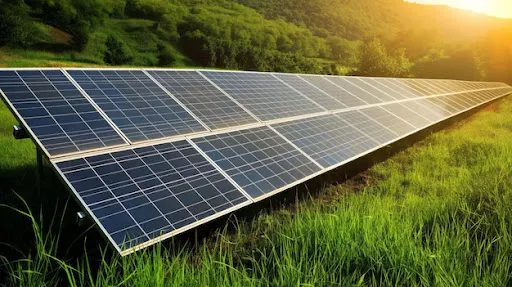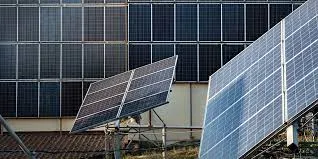Solar panels have emerged as a revolutionary technology in the quest for clean, renewable energy. They are devices that convert sunlight into electricity, providing an eco-friendly alternative to fossil fuels. With the increasing emphasis on sustainability, solar panels have gained popularity among homeowners, businesses, and governments around the world.
How Do Solar Panels Work?
Solar panels work on the principle of the photovoltaic effect. They are made up of many solar cells, usually composed of silicon, which absorb sunlight. When sunlight hits these cells, it knocks electrons loose, creating an electric current. This current is captured and can be used to power homes, businesses, and even large power grids.
Types of Solar Panels
There are several types of solar panels available, each with its own advantages:
Monocrystalline Solar Panels: Known for their high efficiency and sleek appearance, these panels are made from a single continuous crystal structure. They are the most efficient but also the most expensive.
Polycrystalline Solar Panels: These are made from multiple silicon crystals and are slightly less efficient than monocrystalline panels but more affordable.
Thin-Film Solar Panels: These are made by depositing one or more thin layers of photovoltaic material onto a substrate. They are less efficient but are lightweight, flexible, and easier to install.
Bifacial Solar Panels: These panels can capture sunlight from both sides, increasing the total energy output, especially when installed in areas with reflective surfaces.
Advantages of Solar Panels
Solar panels offer numerous benefits, making them an attractive option for energy production:
Environmentally Friendly: Solar energy is clean and renewable, reducing reliance on fossil fuels and lowering greenhouse gas emissions.
Cost Savings: After the initial installation cost, solar panels can significantly reduce or even eliminate electricity bills. With incentives and rebates, the return on investment can be substantial.
Low Maintenance: Solar panels require minimal maintenance. They have no moving parts, reducing the risk of mechanical failure.
Energy Independence: By generating your own electricity, you become less dependent on the grid, which can be particularly beneficial in remote areas or during power outages.
Increase in Property Value: Homes with solar panel installations often see an increase in property value, as they offer long-term energy savings.
Challenges of Solar Panel Adoption
Despite their benefits, there are some challenges associated with solar panels:
High Initial Costs: The upfront cost of purchasing and installing solar panels can be high, though this is often offset by long-term savings and government incentives.
Weather Dependent: Solar panels generate electricity based on the amount of sunlight they receive, which means their efficiency can be reduced on cloudy days or in areas with less sunlight.
Space Requirements: To generate sufficient power, a considerable amount of roof or ground space is needed for the installation of solar panels.
Energy Storage: Storing solar energy for use during nighttime or cloudy days can be challenging and often requires additional investment in battery storage systems.
Solar Panels and the Environment
The environmental impact of solar panels is overwhelmingly positive. By reducing the need for fossil fuels, solar panels help to decrease air pollution and lower carbon footprints. Additionally, they have a relatively low environmental impact during production compared to traditional energy sources.
However, the disposal of old or damaged panels poses a potential environmental concern. Recycling programs for solar panels are being developed to address this issue, ensuring that the environmental benefits outweigh any potential drawbacks.
The Future of Solar Panels
The future of solar panels looks bright, with advancements in technology promising to increase efficiency, reduce costs, and broaden the application of solar energy. Innovations such as solar roof tiles, transparent solar panels for windows, and portable solar chargers are just the beginning. As the world moves towards a greener future, solar panels will undoubtedly play a key role in powering the planet.










